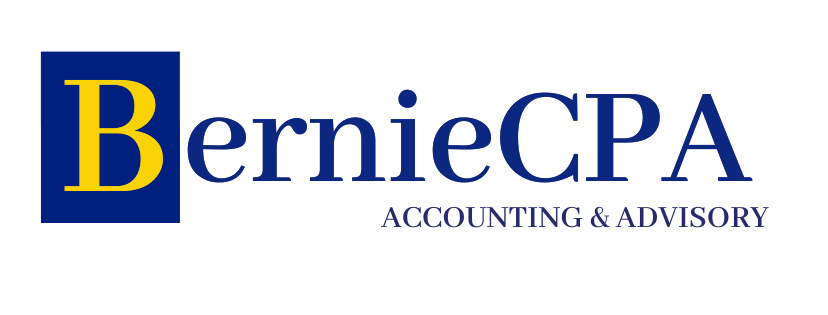Avoiding IRS Penalties: How to Properly Report Nonemployee Compensation
Nonemployee compensation refers to payments made to individuals who are not considered employees of a company or organization. This can include independent contractors, freelancers, consultants, and other self-employed individuals who provide services to a business. Nonemployee compensation can cover a wide range of services, from professional consulting to technical support, and can be paid in the form of fees, commissions, or royalties. It is important for businesses to accurately report nonemployee compensation to the IRS in order to comply with tax laws and regulations.
Nonemployee compensation is typically reported on Form 1099-MISC, which is used to report various types of income to the IRS. This form is used by businesses to report payments made to nonemployees totaling $600 or more in a calendar year. It is important for businesses to accurately report nonemployee compensation on Form 1099-MISC in order to avoid penalties and ensure compliance with tax laws. Understanding the requirements for reporting nonemployee compensation is essential for businesses to avoid potential issues with the IRS.
Reporting Nonemployee Compensation on Form 1099-MISC
When reporting nonemployee compensation on Form 1099-MISC, businesses must provide the recipient’s name, address, and taxpayer identification number (TIN). This information is crucial for the IRS to accurately track and verify the income reported by both the business and the recipient. In addition to the recipient’s information, businesses must also report the total amount of nonemployee compensation paid during the calendar year in box 7 of Form 1099-MISC.
It is important for businesses to ensure that the information reported on Form 1099-MISC is accurate and complete. Any errors or omissions can lead to potential penalties and issues with the IRS. Businesses should also retain copies of all Form 1099-MISC filings for their records, as well as provide copies to the recipients by the January 31st deadline. Reporting nonemployee compensation on Form 1099-MISC requires attention to detail and compliance with IRS regulations.
Deadlines for Reporting Nonemployee Compensation
The deadline for reporting nonemployee compensation on Form 1099-MISC is January 31st of the following year. This means that businesses must provide copies of Form 1099-MISC to recipients by January 31st and file the forms with the IRS by the same date. Failure to meet these deadlines can result in penalties and potential issues with the IRS.
It is important for businesses to be aware of the deadlines for reporting nonemployee compensation in order to avoid penalties and ensure compliance with tax laws. Businesses should also be mindful of any changes to deadlines or regulations that may impact their reporting requirements. Keeping track of deadlines and staying informed about tax laws is essential for businesses to accurately report nonemployee compensation.
Penalties for Failing to Report Nonemployee Compensation
Failing to report nonemployee compensation on Form 1099-MISC can result in penalties from the IRS. The penalties for failing to report nonemployee compensation can vary depending on the circumstances, but can be significant. Businesses that fail to file Form 1099-MISC by the deadline or provide copies to recipients can face penalties ranging from $50 to $270 per form, depending on how late the filings are made.
In addition to late filing penalties, businesses may also face penalties for inaccuracies or omissions on Form 1099-MISThe IRS can assess penalties for failure to include accurate information, failure to include all required information, or failure to file electronically when required. These penalties can also range from $50 to $270 per form, depending on the severity of the errors. It is important for businesses to understand the potential penalties for failing to report nonemployee compensation in order to avoid costly issues with the IRS.
Steps to Avoid IRS Penalties
To avoid IRS penalties for failing to report nonemployee compensation, businesses should take several steps to ensure compliance with tax laws and regulations. First, businesses should accurately track and record all payments made to nonemployees throughout the year. This includes obtaining accurate taxpayer identification numbers (TINs) from recipients and maintaining detailed records of all payments.
Second, businesses should be mindful of deadlines for reporting nonemployee compensation and ensure that all required forms are filed with the IRS by the January 31st deadline. This includes providing copies of Form 1099-MISC to recipients in a timely manner. Third, businesses should carefully review all information reported on Form 1099-MISC for accuracy and completeness before filing with the IRS. Any errors or omissions should be corrected before the deadline to avoid potential penalties.
Common Mistakes to Avoid When Reporting Nonemployee Compensation
When reporting nonemployee compensation on Form 1099-MISC, there are several common mistakes that businesses should avoid in order to comply with tax laws and regulations. One common mistake is failing to obtain accurate taxpayer identification numbers (TINs) from recipients. Without accurate TINs, businesses may face penalties for incomplete or inaccurate filings with the IRS.
Another common mistake is failing to provide copies of Form 1099-MISC to recipients by the January 31st deadline. Businesses must ensure that recipients receive their copies of Form 1099-MISC in a timely manner in order to comply with tax laws and regulations. Additionally, businesses should be mindful of any changes to reporting requirements or deadlines that may impact their filing obligations.
Seeking Professional Help for Reporting Nonemployee Compensation
Given the complexities and potential pitfalls associated with reporting nonemployee compensation, many businesses choose to seek professional help in order to ensure compliance with tax laws and regulations. Professional accountants or tax preparers can provide valuable guidance and assistance in accurately reporting nonemployee compensation on Form 1099-MISThese professionals can help businesses navigate the reporting requirements, deadlines, and potential penalties associated with nonemployee compensation.
In addition to providing guidance on reporting nonemployee compensation, professional accountants or tax preparers can also assist businesses in maintaining accurate records and tracking payments made to nonemployees throughout the year. This can help businesses avoid potential issues with the IRS and ensure compliance with tax laws. Seeking professional help for reporting nonemployee compensation can provide peace of mind and help businesses avoid costly penalties and issues with the IRS.
In conclusion, understanding nonemployee compensation and accurately reporting it on Form 1099-MISC is essential for businesses to comply with tax laws and regulations. By being mindful of deadlines, potential penalties, and common mistakes, businesses can take steps to avoid issues with the IRS and ensure compliance with reporting requirements. Seeking professional help can also provide valuable guidance and assistance in accurately reporting nonemployee compensation. By taking these steps, businesses can navigate the complexities of reporting nonemployee compensation and avoid potential penalties from the IRS.


